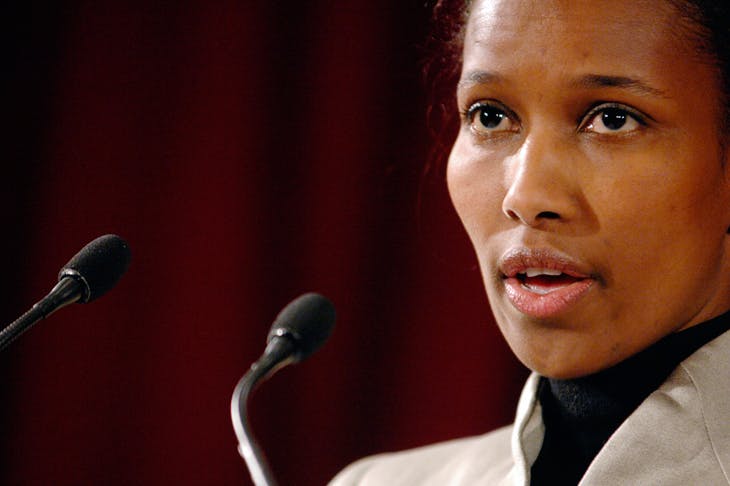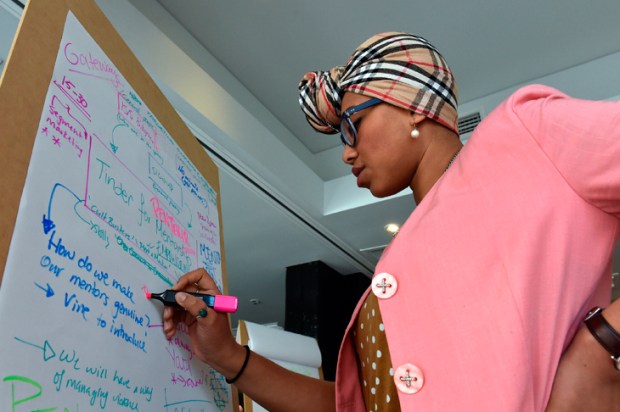The Koran was placed on the highest possible level in my household. It was a mark of awe that the Holy Book should sit on the top of the book shelf. By the time I was a teenager, I was expected to perform a purification ritual, wudu, before reading it. Menstruating women were not allowed to touch it.
I was always encouraged to read it in Arabic, because otherwise I would not understand the true meaning of the text, or so I was told. This was also the response from clerics or mullahs if questions about uncomfortable passages encouraging the killing of unbelievers, hitting women or executing homosexuals arose. I had to understand the root words in Arabic before I could offer any opinions.
This has always been the way with all structures of authority. Control of the language and terminology is a way of maintaining power. Catholic priests did the same with Latin and the Bible. But then along came the printing press and Luther, smashing up the old hierarchies. Suddenly information spread like wildfire, books were easily printed in other languages and illiterate people had motivation to learn to read. Soon they could read the text of the Bible and decide for themselves, upending previous hierarchies.
While the Reformation is considered a problematic word in Islam, because Wahhabism and the nation of Saudi Arabia are considered the products of an equivalent purification of Islam, the reform of Islam may be driven by the internet.
British ex-Muslim Maryam Namazie says that the internet is helping to unshackle Muslim atheists, previously hiding in the midst of their respectable, pious brethren. Translation software is allowing for much easier textual understanding and investigation of so called Arabic root words. When scepticism or unbelief takes hold, unbelievers have access to an available online community of support.
‘This has brought with it courage and hope for the right to live as they choose. It’s become a global resistance movement,’ writes Namazie.
The development represents a major threat to the stability and hierarchy of Islamic countries. The Saudis are taking it very seriously with authorities equating atheism with terrorism in new laws. In Egypt, the highest Sunni authority has joined forces with the youth ministry to combat rising expressions of atheism. Apostasy is punishable by death in at least thirteen Islamic countries with many more carrying offences like flogging and imprisonment.
Nor are such attitudes limited to beyond our shores. As recent footage of a Hizb ut-Tahrir meeting in Sydney illustrates, there is no shortage of locally based Muslims who agree that apostates must be killed in Islam. Their escape clause is that this should occur only in an ideal Islamic state, which Australia thankfully falls short of.
Such legalistic technicalities were not necessary for my Uber driver namesake who travelled hundreds of kilometres from Northern England to kill an Ahmadi shopkeeper, Asad Shah, residing in Glasgow. That Tanveer Ahmed is now a hero in his native Pakistan for upholding Islamic values by killing heretics. A rally of support for his actions was held earlier this year.
That such tensions are simmering within Muslim communities is a measure of the genuine desire of many to implement needed reform. But the vast bulk of support from Western governments and media outlets are aimed at aiding so called moderate, religious Muslims; most of whom fall into the apologist category. Supporting atheists from Islam is politically incorrect, because authorities and respectable pundits do not want to be accused of encouraging Muslims to leave the religion. Furthermore, as we’ve just seen with the cancellation of Ayaan Hirsi Ali’s trip, even reasonably held atheist views from Islam are seen as threatening, insensitive and demeaning to religious Muslims. This is one of the biggest barriers to the reform of Islam, that Muslim identity is so tightly wrapped up in the expression of self. We may see hijabs and beards as external markers but they are fashion accessories to an inner outfit of historical injustice, moral superiority and a barely disguised middle finger to Anglo-Saxon, mainstream Australia.
For decades Muslims have protested that any legitimate criticism of Israel is deflected by Jews with accusations of anti-semitism. But now Muslims have jumped on the bandwagon themselves with the term Islamophobia used as a defence against the scrutiny of the set of ideas that is Islam.
The result is often an unsophisticated debate veering from proclamations that Islam is a falsely maligned religion of peace to more antagonistic voices demanding bans on Muslim immigration. By aggressively crowding out the most informed Islamic reformers, like Hirsi Ali or British thinker Maajid Nawaz, defensive Muslims are rewarded with the likes of Wilders, Trump or Hanson.
But Islamic reform depends upon having a large variety of voices and thinkers in the tent varying from feminists, gays and atheists. The notion of an atheist or cultural Muslim has traditionally been a joke, an oxymoron in Islam, but it is time for this new category. As the Canadian-Pakistani physician illustrates in his book The Atheist Muslim, the vast majority of Muslims completely reject the passages in the Koran encouraging the hitting of women, executing homosexuals or killing apostates. But in their rejection they are usually limited to intellectual gymnastics about the passages lacking context because Muslims still believe the text as the word of God. The implications of the way most Muslims behave is that they do not actually believe the Koran being the literal word of God. As Rizvi notes, religious believers all self select their views within certain confines.
There are many cafeteria Catholics who ignore the faith’s teachings around abortion and contraception but retain their Catholic identities. Likewise many Jews openly reject belief in an Abrahamic God but are committed to traditions like Passover. Judaism progressed from questioning the Torah as being the word of God to accepting that it was created by men with divine inspiration.
Figures like Hirsi Ali have changed their attitudes to reform, believing that it’s important to be in the tent with Muslims, whereas previously she was resigned to abandoning the religion altogether. But any progress still depends upon Muslims giving up such a space and not seeing atheists as existential threats. There is only a flicker of such attitudinal change thus far.
Got something to add? Join the discussion and comment below.
Get 10 issues for just $10
Subscribe to The Spectator Australia today for the next 10 magazine issues, plus full online access, for just $10.
You might disagree with half of it, but you’ll enjoy reading all of it. Try your first month for free, then just $2 a week for the remainder of your first year.














Comments
Don't miss out
Join the conversation with other Spectator Australia readers. Subscribe to leave a comment.
SUBSCRIBEAlready a subscriber? Log in